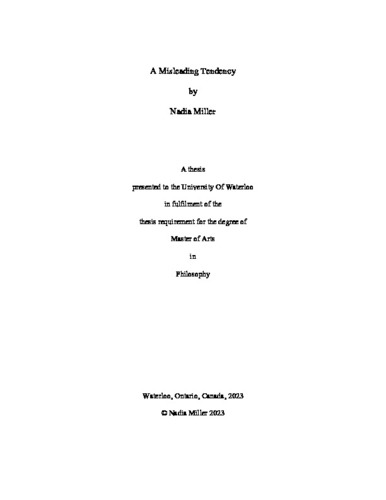| dc.description.abstract | Communication is a powerful tool. We use it to share information, express how we feel, coordinate in cooperative endeavors, and so much more. However, we regularly use standard communicative devices like speech and gesture to piss each other off, to manipulate each other, and to cause harm; flipping you off or calling you by a slur is no less clear a way of sending you a message than is stating a simple fact. In roughly the last decade, philosophers of language have turned their attention away from idealized communicative contexts to develop new theories about non-ideal communication, which includes phenomena like lying, misleading, and deceptive speech. The philosophical study of lies and deception predates the discipline of philosophy itself, but contemporary theories place a special emphasis on their explanatory and moral applications in real-world social and political contexts. While care has been taken in this tradition to define lying speech, and to distinguish it from speech that is ‘merely’ misleading or deceptive, insufficient care has been taken to define and distinguish misleading speech as a distinctive communicative act. This gap in the literature overlooks a class of cases that are not captured by definitions of lying and deception and their unique moral significance.
In this thesis, I defend the following, novel account of misleading:
Misleading: A communicative act C is misleading iff C has a tendency to cause others to reason badly
I argue that this definition of misleading is the best way to capture the fact that misleading does not necessarily cause anyone to form a false belief. My view challenges prior accounts of misleading in the literature which take this element to be necessary, and thereby fail to accommodate cases of misleading that are not successful or result in something other than a false belief. | en |

